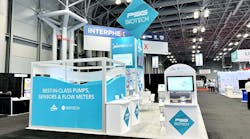U.S. bioplastics manufacturer NatureWorks LLC and energy company Calysta Energy are bent on developing a commercially viable method to convert methane into lactic acid, a key feedstock for producing bioplastic packaging, the companies announced last week.
Lactic acid is used as a building block for NatureWorks Ingeo — lactide intermediates and polymers that are manufactured from renewable products.
If the partnership leads to the discovery of a successful method for fermenting methane, the impact on the industry will be significant. Such a method could vastly cut costs for producing bioplastic packaging and would expand the range of applications of packaging products for food products, beverages and household items.
According to Steve Davies, director of corporate communications and public affairs for NatureWorks, the collaboration between the two companies will result in a number of environmental benefits. One of them is the fact that developing such a method would reduce the current dependency on agricultural feedstocks. However, it would also simplify the process of turning carbon into packaging.
Asia, Australia predicted to outperform US in coal bed methane production
Methane is one of the most powerful greenhouse gases, approximately 20 times more harmful than carbon dioxide. It is created during the natural process of decomposition of plants and organic waste. Methane is also generated by wastewater treatment and anaerobic digestion. If NatureWorks and Calysta Energy manage to develop the technology, carbon could be accessed directly from any of these sources, the two companies explained. Under the terms of the deal they will share the rights over the developed products.
Specialists from NatureWorks who are working on the project say that assessing how feasible it would be to convert methane into feedstock for lactic acid could take about five years. The direct conversion of methane would also reduce the steps and operations necessary for turning carbon into consumer products, which would in turn cut costs for producing Ingeo, explained Marc Verbruggen, president and chief executive officer of NatureWorks.
Mitsubishi Chemical to develop bioplastics for automotive interiors
At present, the company uses carbon from carbon dioxide to manufacture Ingeo from feedstock that has been sequestered into plant sugars, called first generation materials, through photosynthesis. NatureWorks relies on corn starch and cane sugar across its two facilities in the United States and Southeast Asia. It is also working on a broad technology assessment of cellulosic sources of carbon. In its Southeast Asian facility, the company is looking into possibilities to harvest cellulosic sugars from bagasse, a byproduct of sugarcane processing that is available in abundant amounts.
In turn, Calysta Energy is contributing its expertise in developing a biological gas-to-chemicals platform for conversion of methane into various chemicals. It will assess whether potential sources of methane feedstock are suitable for commercial production of lactic acid. The assessment will be made against a set of criteria, including purity, accessibility, price, energy efficiency and environmental impact, among others.



